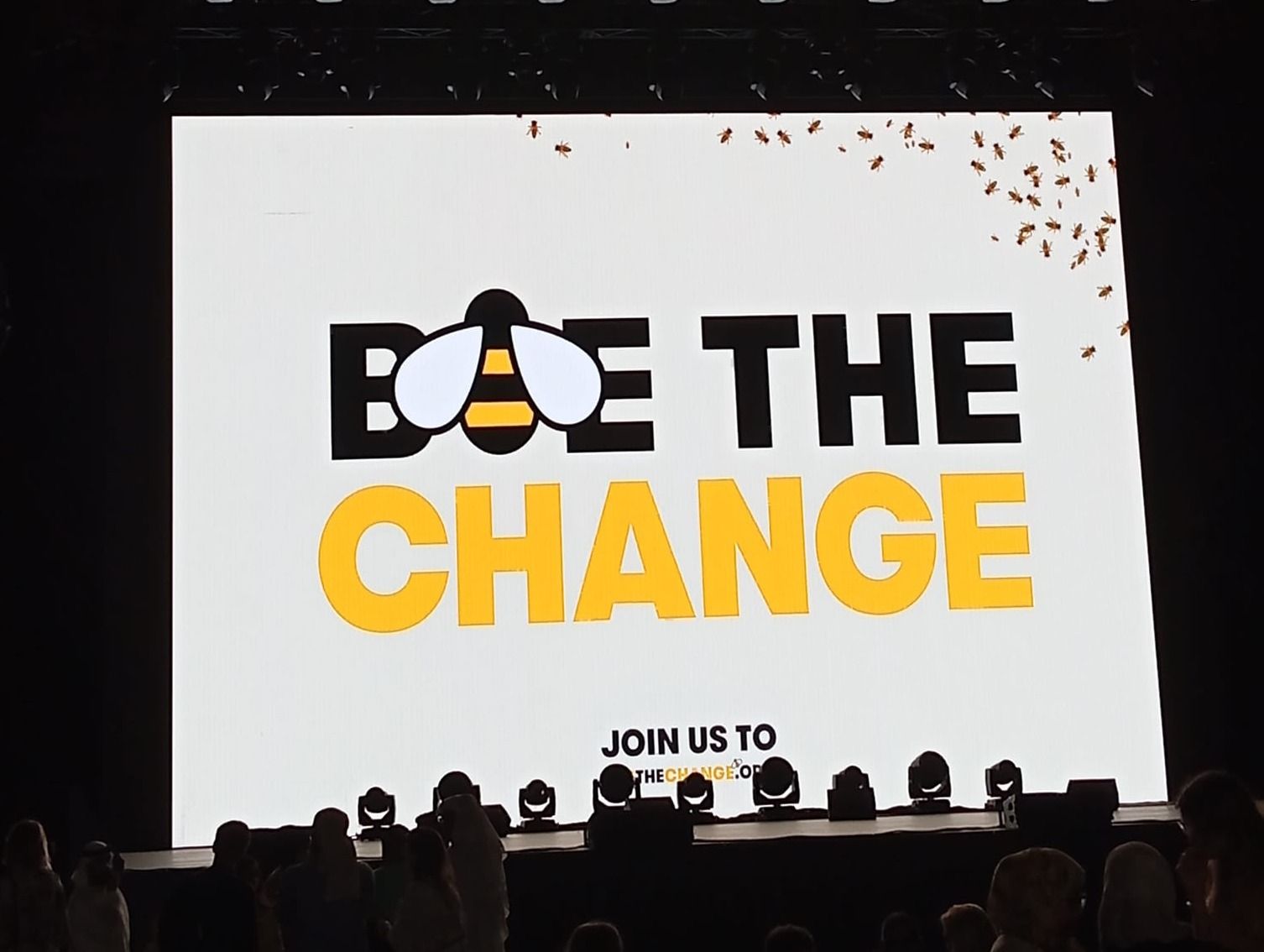🐝 Be(e) the Change🌿

Back in the days, my late grandfather used to do wild beekeeping using tree barks. He could send a word for me to come and collect some honey, very pure & golden. The following day, early in the morning l was on road to sekuru's village, atmost 3KM from ours.
He was a known beekeeper in the community and beyond, even to this day, his history continues. 10 years down the lane, the bees were nomore, by the time he passed away 4 years ago at the age of 94, the bee hives were already housed by spiders, lizards and all related species.
What made the bees disappear? Was it poor beekeeping practices? Absolutely not!! I'm sure only one bee hive exist to this day, rightfully positioned up the tree. Some were later used as firewood.
By this time all of us can answer that question: the signs are clear, bees are becoming rare. I also remember in Primary School, bee swarms were very common. Flying at their 3m height, we could lie flat on the ground and let them pass peacefully without starting any trouble. Where are the bees??
Throughout my academic journey as an Environmental Science student, l learnt about bees as pollinators, but l never dreamt l would fall for beekeeping, just like l did with tree growing. It was during COP28, when l visited the Green Zone for a BeeTheChange, the world first preview of a new nature documentary (presented by Josh Tickell, the Film Director & Eva Kruse, the Chief Global Engagement Officer, PANGAIA, and the event was moderated by Samata Pattison, CEO at Black Pearl). It really got unto me, deepening my understanding on how vital these little creatures are to biodiversity, our food systems including climate resilience.
That moment, l fell in love with bees, a vision of becoming a true BeeTheChanger was born. In the former days, l was only interested about the honey as a nutritious & medicinal food source, as a kid, l couldn't see beyond for my knowledge was limited, shame. I'm sending a big thank you to sekuru, the first BeeTheChanger in my life, and too many generational beekeepers who left this world. They played their role, the button is now in our hands, and l hope by making things right with nature, we will pass on a sustainable planet to thoe coming after us.
Months after COP28 and also my participation at SBSTTA-26 & SBI-4, l came back with a live vision right in my hands, ready for implementation. It was to start a beekeeping pilot project with Villa Farm Enterprise. I had met a colleague in the construction industry, a beekeeper and a very professional carpenter, we collaborated and installed 5 beehives in Murehwa. The plan didn't go well, none of us was on the ground, an error which is made by so many people. One cannot nurture bees from a full-time distance. It was purposefully called bee-keeping, l repeat again on a higher volume, it is called bee-keeping. I learnt my lessons, thumbs up, l didn't quit🐝.
To cut the story, today l'm so proud to share that l met an incredible mentor with 35+ years of experience in bee-keeping. Later, l was assigned to co-manage Dzikwa Trust Fund bee-keeping project which was supported by UNDP Zimbabwe| GEF SGP, and Bindura University of Science & Technology. Together we are managing 20+ hives.
l highly believe in the power of intergerational solidarity to drive real change, l've witnessed and lived it from childhood phase. Through such an enriched partnership, I’m gaining invaluable hands-on skills, traditional knowledge, and lessons in sustainable bee-keeping, while also promoting land restoration. Taking it one step a day, I hope to inspire and engage more young people in beekeeping, not only as a livelihood, but also as a way to care for Creation while also protecting Mother Earth, Our Common Home.